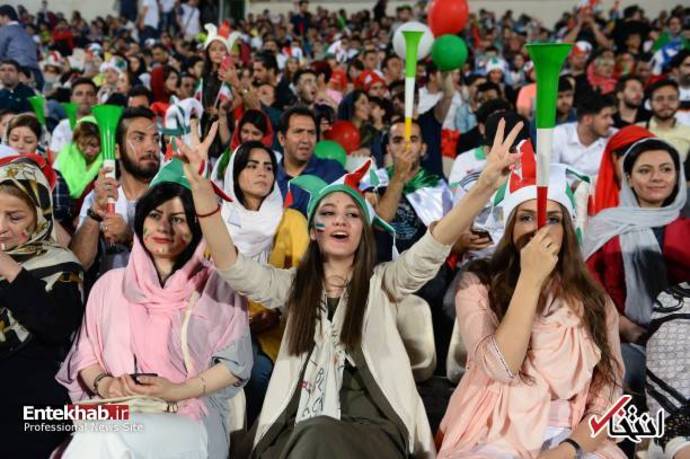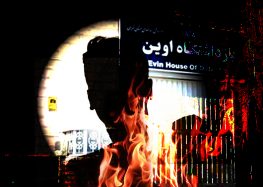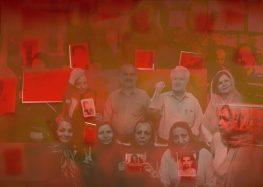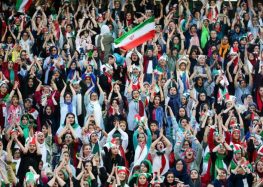Iranian Stadium Ban Activists Honored in Wake of “Blue Girl” Tragedy
 Minute of Silence Observed for “Blue Girl” Stadium Ban Resister Who Died by Self-Immolation
Minute of Silence Observed for “Blue Girl” Stadium Ban Resister Who Died by Self-Immolation
Activists leading the struggle against Iran’s ban on women in stadiums were honored with the “Sport for Human Rights” award sponsored by social change organizations Beyond Sport and Equality League at a reception in New York City on September 12, 2019.
A minute of silence was observed for Sahar Khodayari, a young Iranian woman who self-immolated after reportedly hearing she would have to serve jail time after being arrested for trying to watch her favorite men’s soccer team play at Tehran’s Azadi Stadium.
Human Rights Watch’s Director of Global Initiatives Minky Worden presented the award to the anti-ban My Fundamental Right and Open Stadium advocacy groups. It was accepted on their behalf by activist Maryam Shojaei.
“This isn’t just a ban on women and girls going to stadiums,” said Worden. “It’s really an obstacle to women and girls taking part in the life of their country, enjoying themselves in public, being with their family.”

Minky Worden and Maryam Shojaei observe a minute of silence for Sahar Khodayari.
“And if you’re an athlete or sports fan, I ask you to think for a moment, how you would feel if you went to the US Open and saw a ‘men only’ sign,” she added. “This is a reality for women and girls in Iran, but it’s not a reality that they have accepted–ever.”
Shojaei, who founded the My Fundamental Right initiative that led to the internationally supported #NoBan4Women campaign, has displayed an anti-ban banner at major international matches featuring Iran’s national Team Melli including at the 2018 FIFA World Cup in Russia.
Khodayari, 29, reportedly died on September 10, 2019, in the intensive care unit of Tehran’s Motahari Hospital after setting herself on fire outside a courthouse in Tehran.
Originally from the city of Qom, she had been summoned to the courthouse to be prosecuted after being arrested for trying to watch her favorite soccer team, FC Esteghlal, play at Tehran’s Azadi Stadium in March 2019. She set herself on fire after “she heard she had to stay in prison for six months,” her sister told a state-funded media outlet.
Khodayari was referred to as the “Blue Girl” on social media networks because she was wearing her team’s signature blue color the day she was arrested.
Iran is the only country that bans women from sports stadiums. Increasingly unpopular domestically, the state policy is a violation of world football governing body FIFA’s statutes that bar teams from allowing discrimination of any kind.
In a statement, FIFA sent condolences to the Khodayari family and said it reiterates its “calls on the Iranian authorities to ensure the freedom and safety of any women engaged in this legitimate fight to end the stadium ban for women in Iran.”
Previously FIFA told Iran that it must lift the ban to become compliant with FIFA statues prohibiting discrimination by October 10, 2019, when Iran hosts a World Cup qualifier match. But FIFA has not publicly stated what would happen if Iran does not lift the ban.
“It is tragic to contemplate that if FIFA had only enforced their own rules to allow women into stadiums, Sahar Khodayari might still be alive today,” Worden told the Center for Human Rights in Iran (CHRI).
“The best way to honor her memory is to overturn the stadium ban now, ensure women and girls can purchase tickets to stadiums, and attend any sports event safely,” she added.
Sign and share the #NoBan4Women petition.






